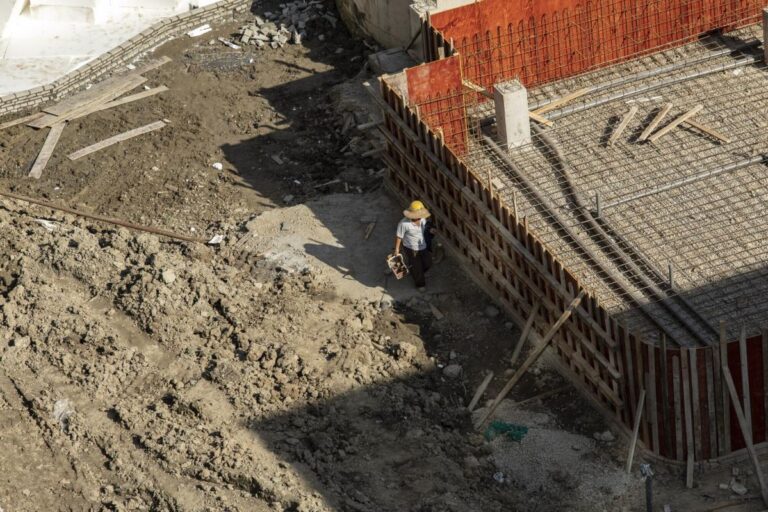
[ad_1]
(Bloomberg) — Chinese developers’ bonds gained along with their shares after authorities began drafting a list of 50 real estate firms that would be eligible for a range of financing as Beijing sought to support the embattled property sector.
Most Read from Bloomberg
A Bloomberg gauge of China developer stocks gained as much as 7.6% to head for its biggest advance since September. Sunac China Holdings Ltd., the first major Chinese builder to reach a restructuring agreement, led the sector’s rise as it rallied as much as 27%. Seazen Group Ltd. and Agile Group Holdings Ltd. also climbed.
The so-called white list, which is intended to guide lenders as they weigh support for the industry via bank loans, debt and equity financing, may help alleviate fears of further contagion in China’s property sector. Still, it remains to be seen if the move will halt the industry’s long-running slump given that it does not represent a directive to banks to extend loans to real estate firms.
China Vanke Co., the nation’s second-biggest developer by sales, led gains in property bonds after its 3.5% notes due 2029 rose 2.7 cents to 61 cents on the dollar as of 1:53 pm in Hong Kong. Longfor and Seazen’s notes also advanced, although the bonds still trade at distressed levels.
China Vanke, Seazen and Longfor were among the companies that were named in a draft of the funding list, people familiar with the matter said, asking not to be named because the information is private. It couldn’t be determined which other developers were included on the list.
While the measure may help to boost confidence, the event is unlikely to mark the end of developer defaults, according to JPMorgan Chase & Co. analyst Karl Chan.
“Directionally this would be positive as it should enhance confidence from both homebuyers and banks,” Chan wrote in a note. “But if property sales of a non-SOE deteriorate substantially, we believe most banks may still be reluctant to extend support, as a white list may likely only serve as a ‘reference.’”
China Guides Banks to Cap Early 2024 Loans, Shift Some Forward
The real estate industry contracted 2.7% in the third quarter, the biggest drop this year. Home prices declined the most in eight years in October and funding for property development dropped 13.8% on-year in the first 10 months of 2023.
China’s biggest banks, brokerages and distressed asset managers were told to meet all “reasonable” funding needs from property firms at a Friday gathering with the top financial regulators, according to a government statement that didn’t mention a white list. Financial firms were also asked to “treat private and state-owned developers the same” when it comes to lending.
Still, some investors remain doubtful that the measures can reverse the sector’s slide.
“We want to see which private developers are actually on the list, as well as the size of the funding eventually delivered, because in reality, banks that have low risk appetite might not provide that much support,” said Andrew Zhu, fund manager at at Hainan Shire Asset Management Co.
(Updates throughout. An earlier version of this story was corrected to refer to private developers in the final paragraph)
Most Read from Bloomberg Businessweek
©2023 Bloomberg L.P.
[ad_2]